“For people could close their eyes to greatness, to horrors, to beauty, and their ears to melodies or deceiving words. But they couldn’t escape scent. For scent was a brother of breath”: this is what Patrick Süskind writes in his famous novel “Perfume: The Story of a Murderer”. You can’t escape their presence, their persuasive and evocative ability: for me, fragrances are, above all, the coming to life of sensations and memories, even often distant, which represent an aspect of me and my life. But I am not only this: the more I delve into this world, so precise and rich, the more I realize that perfumes can surprise us more and more and in different ways, arousing our curiosity precisely because of their ineffable nature.
When I talk to experts in the field, it’s as if, for a moment, their nature becomes more concrete: it happened to me even with Silvia Bianco, founder of the Cardamomo store and mind of Mani Perfumes, a line consisting of five Eau de Parfums, five mantras of serenity, which see cardamom and evocative inspirations as a common denominator, of well-being. In a journey through ingredients and inspirations, between the value of the emotions of those who choose their Mani and seeing serenity as an exercise in awareness, Silvia is able to transform her stories into something else, something as ephemeral as perfumes but which, just like them, permeates you and stays with you for a long time. Maybe even for a lifetime.
How and when did your passion for the world of beauty in general and later specifically for fragrances born?
In the world of beauty, I start above all with skincare, body care, and facial care, and from a passion that is for Ayurveda, therefore from the world of traditional Indian medicine, which is very much linked to herbalism, to composition, not for aesthetic purposes but for health. From there, my curiosity to know how the Ayurveda market had updated: science evolved and I became passionate about natural formulations.
The perfumery part came immediately after: I started working as a trainer in about 2012, for brands that had contacted me for spas and shops. Wandering around the shops, I started to see the sections of artistic perfumery that I previously knew only marginally, and I liked this world so much. In short, I became passionate first as a customer and then as a technician.
From the Cardamomo store to the Mani Perfumes brand: how is the journey into the world of fragrances going and how is it evolving?
Studio Bianco and Cardamomo coexist within the same space: Studio Bianco is the part dedicated to treatments and consultations, while Cardamomo is the shop, the concept store. In the store, I never say that it’s my perfume line, except to people who follow us on social media or who follow me, and therefore know it, but I tend not to say it to avoid conditioning their reaction. They like the perfumes, and the customers are having reactions that I didn’t expect: there is one of the fragrances, which is Shamanic, that me and the nose, Rosa Vaia, put out because it was particular and we liked it, but with the thought that it would never sell. But it turned out exactly the other way around! [laughs] It is among the best-selling perfumes, perhaps precisely because it is strange and has something not felt before, so it was a nice discovery.
It’s nice to see people’s reactions and discover their impressions: some are in common with the ideas I had, others are completely different.
The plan would be to have many dealers all over the world; I look a little more abroad than in Italy, perhaps because I have seen the reality of Italian perfumeries so much from the inside that I would like to have a few but selected here. Instead, abroad I could have a little more breathing room, and do more research. In the end, very often you see a lot of artistic perfumeries that all have the same selection of brands, and this is a bit of a shame because they become a kind of chains. As a big fan of perfumeries, I like to discover the specificity and uniqueness of the shops. In my shop, I have many brands, and those who come to us are those who are looking for the niche of the niche, who are looking for an identity to take. The fact is that it is very difficult to detach Italy from fashion, which in our country is a bit limiting, while abroad it is perhaps one of the reasons why they love everything Italian.
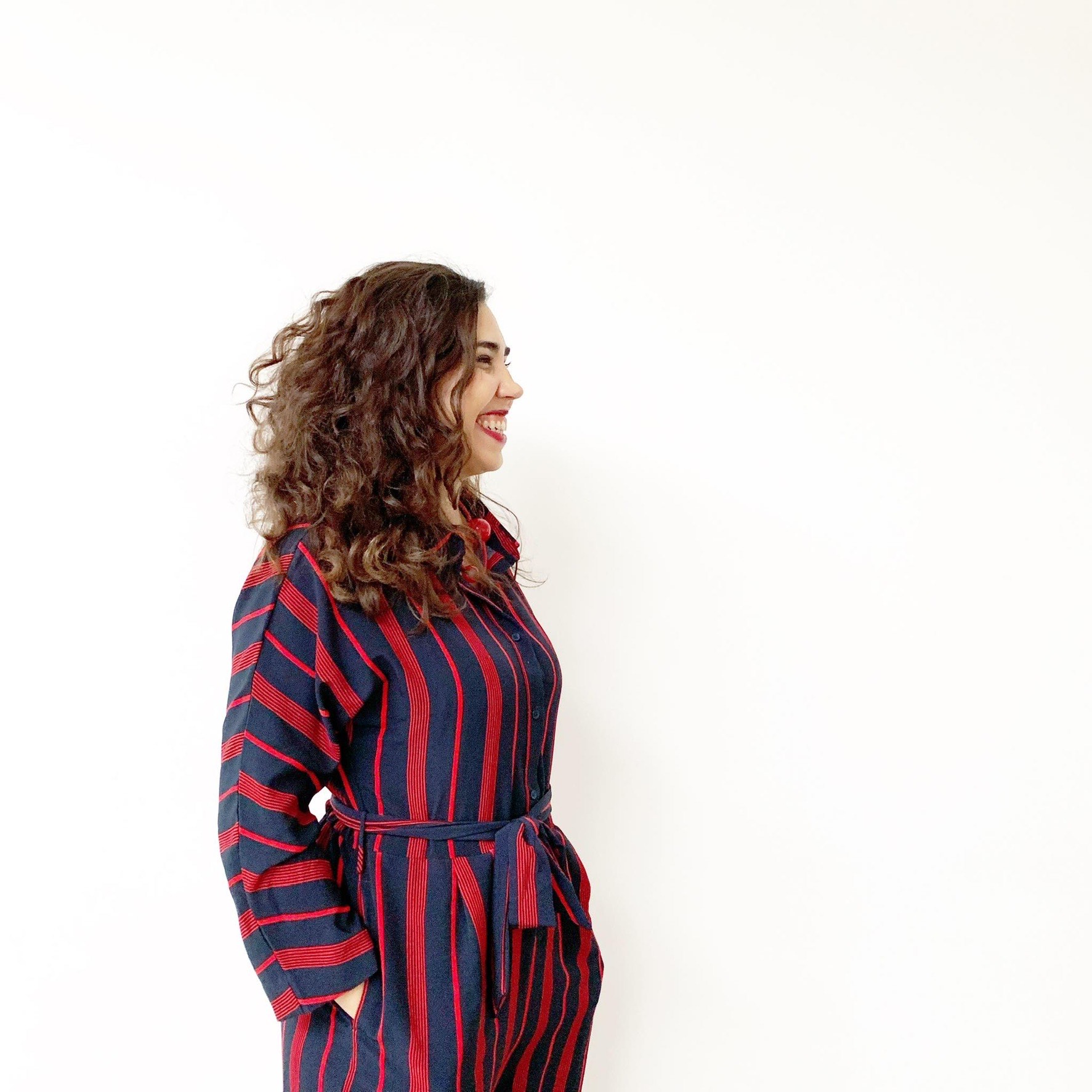
Cardamom is the key ingredient of all five feel-good fragrances in the line: how do you develop the selection of ingredients, and how does the association with ideals of well-being take place?
This is a funny story. What people don’t know is that I’m not a formulator, so I had a nose, which few people claim. I highly respect my nose professionally, so I proudly admit that she is behind my fragrances. Few people may know that when you commission a line of perfumes, you can give the idea of the sensation, the theme of the line, and then the nose makes you proposals for olfactory pyramids. In my case, however, the opposite happened: I terribly offended my nose, because I was the one who proposed the pyramids [laughs]. Except for Shamanic, actually!
Cardamom is one of the most expensive and prized spices in the world, along with vanilla and saffron; for me it is a super special spice, because it is linked to a memory I have, which is that of chai. The first time I went to India to study was a culture shock for me. I’ve never had a relaxed holiday there, I’ve always been with my family, I’ve lived its most authentic side, and it was quite an intense experience: when I got there, I wanted to leave, in no uncertain terms, until in the Ashram they served me a cardamom chai with very sweetened milk and that was the moment when I said to myself, “I can stay”. It gave me a feeling of home, and this olfactory memory of cardamom a little toasted, because it was found in tea, and that is found in Humani, which is one of the fragrances, every time I smell it gives me a feeling of home and well-being. That’s why my shop is called “Cardamom”, because I want people to feel at home when they come to me. The concept of well-being for me coincides with being able to give customers that same feeling of comfort, of feeling at ease, which is what I think perfume should do. The perfume is a bit like a dress: I can decide to wear the wonderful Oud to make you feel like I enter the room, or vanilla for a cuddle, but in essence what matters is that I feel at ease. Perfume, therefore, is also a form of comfort, and formulations should also look at this, in addition to the fashion we were talking about earlier.
What should guide a person when choosing your fragrances? Is it more an instinctive, emotional or practical matter?
I’ll answer in two different ways: from Silvia, the trainer, who says that there is a path that involves going from the most well-known and less intense fragrance to the one that is a little more structured, for a matter of olfactory ease. Another part of me, though, would like people to choose their perfume thinking about how they feel when they wear it and not what others will think. Then, the latter is a side effect that is very pleasant, when you go out and about and people ask you what perfume you wear, but it is more important to ask ourselves what we feel when we wear it. For me, it’s very emotional when people say to me, for example, about Manipura, “It makes me feel safe“, or about Rimani, “It’s a cuddle, it makes me feel sweeter”. It’s nice to think about how I feel with those olfactory cloths on.
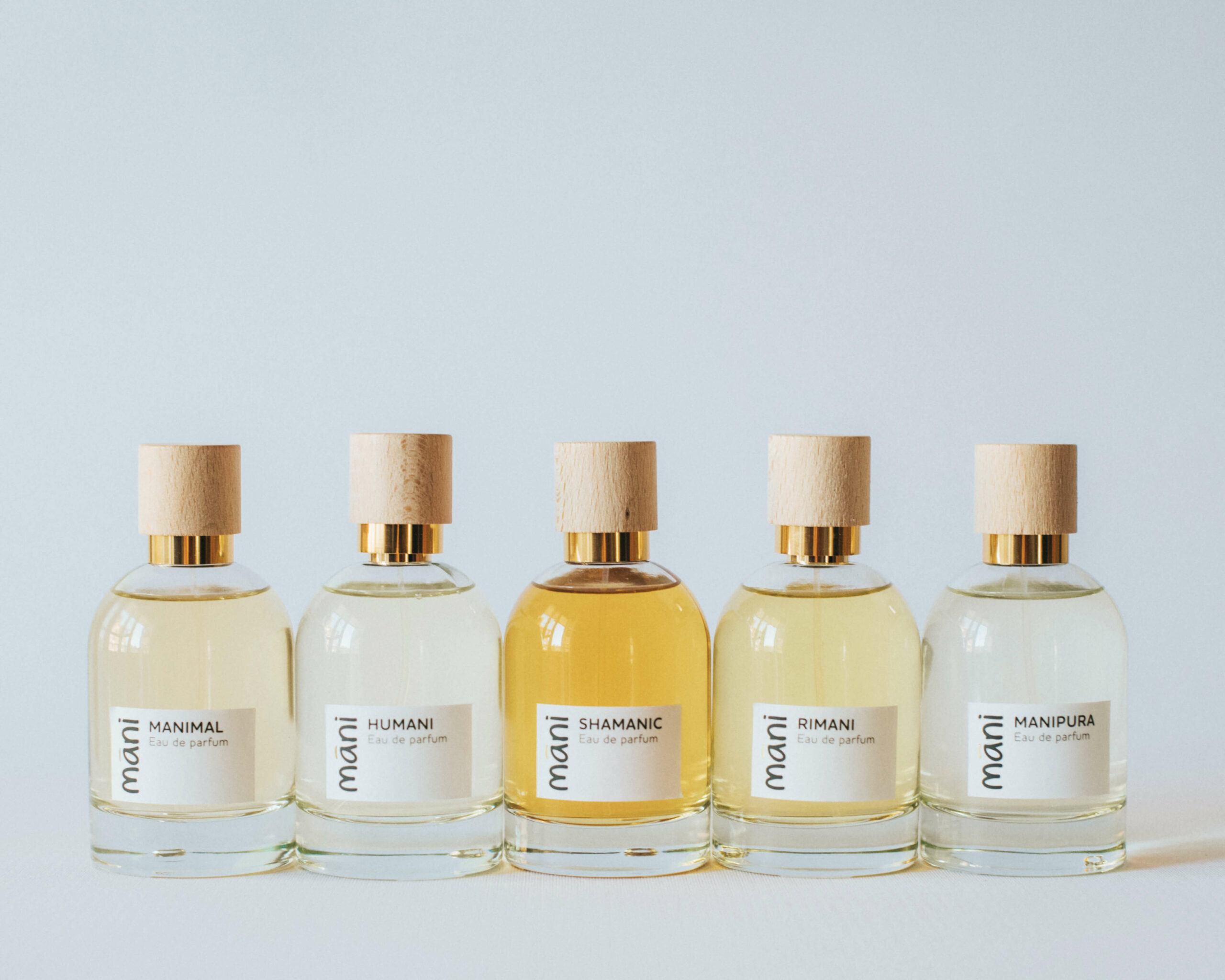
“The concept of well-being for me coincides with being able to give customers that same feeling of comfort, of feeling at ease, which is what I think perfume should do.”
What’s your favorite story about your fragrances and why?
I find the stories all equally exciting at the moment, I’m excited by every feedback that comes through the press, for example, and the fact that people don’t believe that mala is included, and it is, and its inclusion has been a big struggle of mine, because it’s beautiful, it’s tactile, and each one has its own meaning. It excites me to see people wearing my mala, it excites me to know the various reactions, going back to what I told you earlier about people asking me what perfume I wear.
How does smell, but all the senses, really, help you better understand yourself and the world around you? Do you find that they are a useful key to interpreting reality?
I base my notions of psychology: smell is one of the senses that for us has been less altered than other senses, so it is less filtered and it is still one of the things that we have most similar to animals. Through the sense of smell we immediately recover the sense of danger, the sense of ease; Let’s think about how many smells we no longer smell because we don’t perceive them as danger, or the fact that even with a cold we can smell burning.
In my opinion, the degree of self-awareness is precisely this: because there are smells that have remained in my olfactory memory in this way and the type of sensation they arouse is inevitably linked to the emotions I felt at the time, when an olfactory memory was created in my memory. From the perspective of a different sense, that of sight, if you think about it, sometimes we have a bias that if I meet a person who looks like my ex, or any person who is on my balls, associating somatic traits that simply look very similar, instinctively I will get defensive, or I will be very offensive.
With perfumes, the same happens, in a slightly different way, in the sense that we are less used to thinking about them; however, it is worth dwelling on the sensations that a perfume arouses in us, because we often go to a memory even very distant in time, usually in childhood, where olfactory memories are formed, because we need to store information for survival.
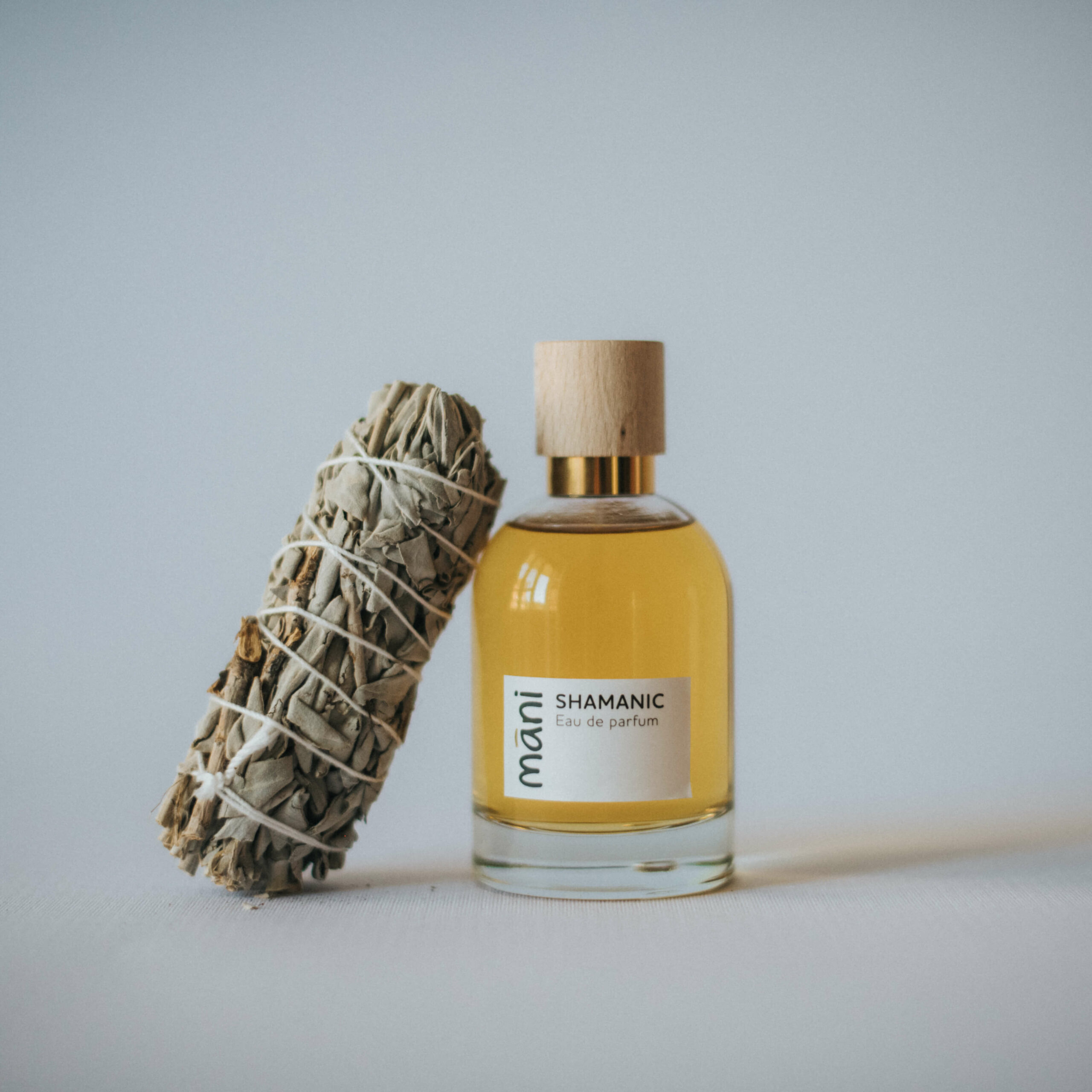
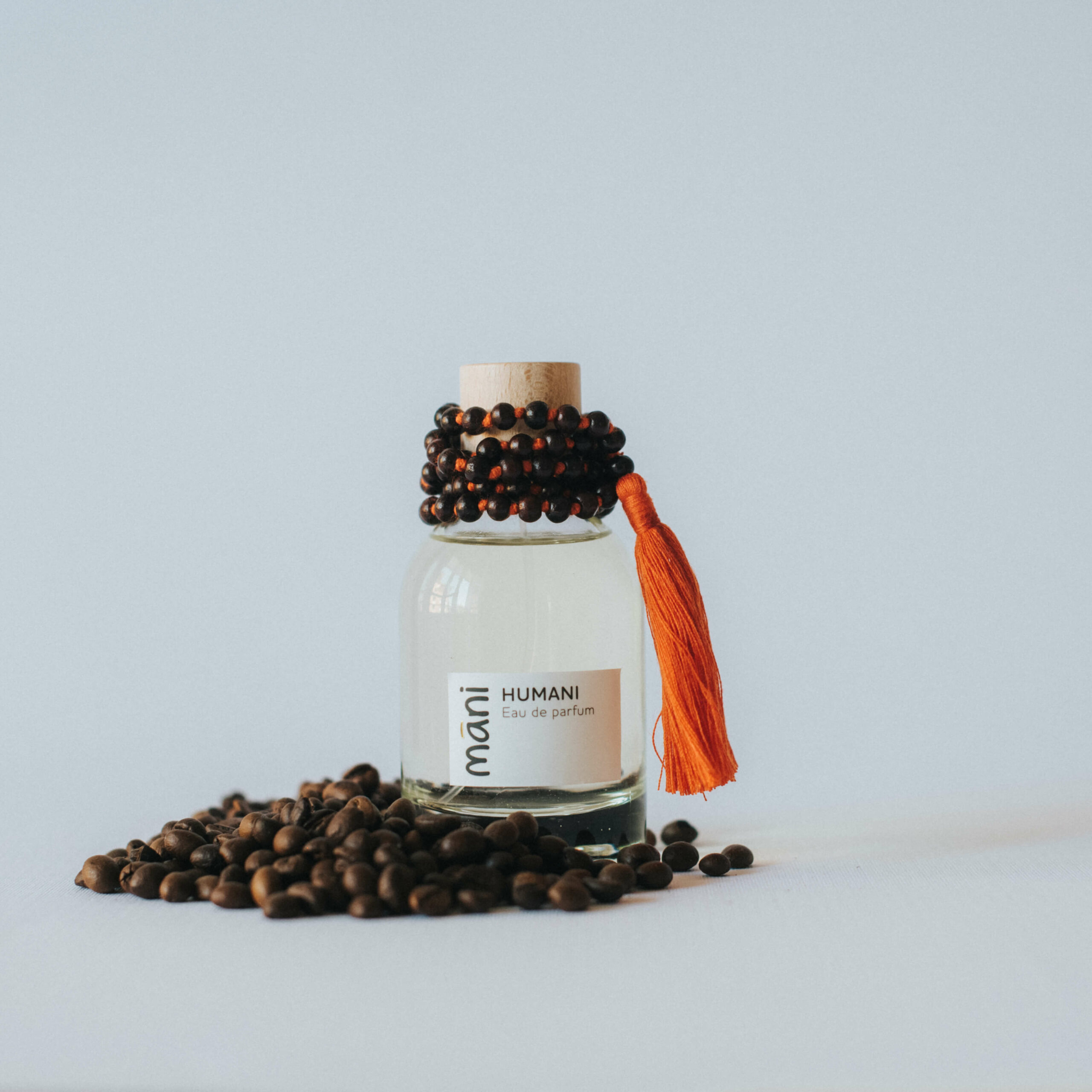
Serenity is perhaps the most difficult state of mind to achieve, because while happiness is often quick, the time of an instant, serenity is a concept that lasts longer in the long term: what does this feeling represent for you?
I associate serenity very much with peace, and peace is very difficult to describe in a few words… It is a sort of “low stimulation-low reaction”, or rather, a control of one’s reactions, so when we talk about meditation, or detachment, as Buddhism preaches, we also talk about peace, serenity, because in those states you can better achieve those goals. That said, it’s definitely not our detached culture. The method of achieving serenity probably consists of a path of acceptance that cannot be perpetual, because we cannot be constantly serene and we cannot stay in the same state for a long time. And in order to evolve you also have to be uncomfortable. I’ll give you an image: my spiritual master was very critical of hermits, with masters isolating themselves from the world in order to meditate and to attain enlightenment; he rightly said, “You don’t achieve enlightenment by isolating yourself from the world, so it’s too easy. You get enlightened by being in the mess”. That’s right, it evolves even in the very uncomfortable situation; it is easy to achieve serenity in the spa of a 5-star hotel, while it is much more difficult to achieve it when I am in a situation of discomfort, with information coming to me about the war, pressure at work.
If I can at least keep myself mentally stable in those contexts, that can be a good degree of serenity. It’s an exercise in mindfulness: it can’t all be in balance, so it’s all about figuring out what’s not going well, how, if there are energies that are hindering me in achieving a goal, what I’m sabotaging. It’s always a work on oneself. To achieve moments of peace and serenity after meditation, for example, we often say “memorize this state”, to use it when you don’t have it, and to remind yourself that that thing there you are able to achieve, it is inside each of us: we just have to go and fish it out.
What does it mean to you to feel comfortable in your own skin?
It means a lot of things. To feel comfortable in my body is to be in total acceptance that my body is functioning, that I accept it as it is, that it is doing its best to make me feel good, that it is the means by which I can evolve in this way. Definitely, there is a less spiritual part which is: I feel like I’m in the right place, I feel like the right person to…
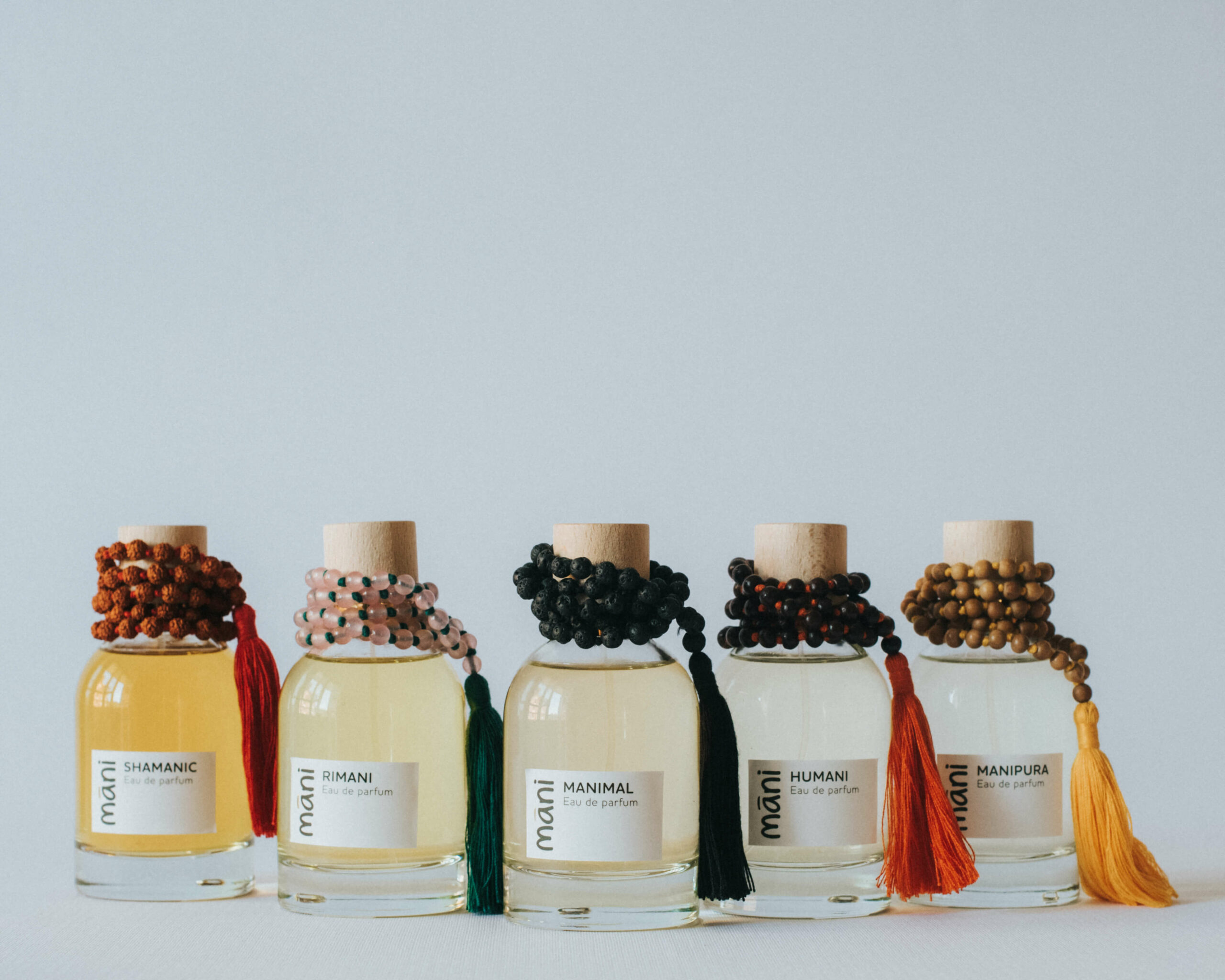
“You don’t achieve enlightenment by isolating yourself from the world, so it’s too easy. You get enlightened by being in the mess.”
What’s the bravest thing you’ve ever done?
To accompany my dad to death. I had a terrible relationship with him, but that was one of those moments when I said to myself: “Now I’m going to beat the cash”. All the work of forgiveness and the work on oneself are very easy if done remotely, but in real moments, on the other hand, it is difficult, and for me it was a very important healing.
What is your happy place?
I’m Sardinian, so I can’t give a different answer other than “Sardinia” otherwise I’d be disinherited [laughs], partly because that’s where I physically have a home, but above all because that’s where I have the most family. Then, I love Sardinia because it is a very simple island in its total archaeological and natural richness: it is a place where I feel I want to return, despite the fact that I was born and raised in Milan.
In reality, however, in general, my happy place is my home, even here in Milan, because it is a place in my image and likeness, as well as my shop. I’m a person who has always moved around quite a bit, to be honest, so there are so many places where I can feel at home. This year, for example, I was in Lanzarote and I fell in love: so many photos of Mani were taken there!


![Interview with Veronika Strotmann [Co-Founder of Yepoda]: ‘The Good Path for You’](https://www.theitalianreve.com/wp-content/uploads/2024/10/The_Dewy_Day_5-253x200.png)
![Interview With Lilin Yang [Founder of MiiN Cosmetics]: ‘Stay True to Your Vision’](https://www.theitalianreve.com/wp-content/uploads/2024/08/PA260802-267x200.jpg)
![Interview with Claudia Soare [President of Anastasia Beverly Hills]: Boosting Beauty Through Innovation](https://www.theitalianreve.com/wp-content/uploads/2024/07/Claudia-Headshots_1-300x200.jpeg)
![Interview with Nicola Kilner [The Ordinary CEO and Co-Founder] and Rita Silva [The Ordinary Science Communications Manager]: ‘Success is in the Early Days’](https://www.theitalianreve.com/wp-content/uploads/2024/05/2023-05-29-ORD-Visual-Lifestyle-Rtnl-02pct-Eml-HMH-ARA-Hero1-01-16x9-2-237x200.jpg)